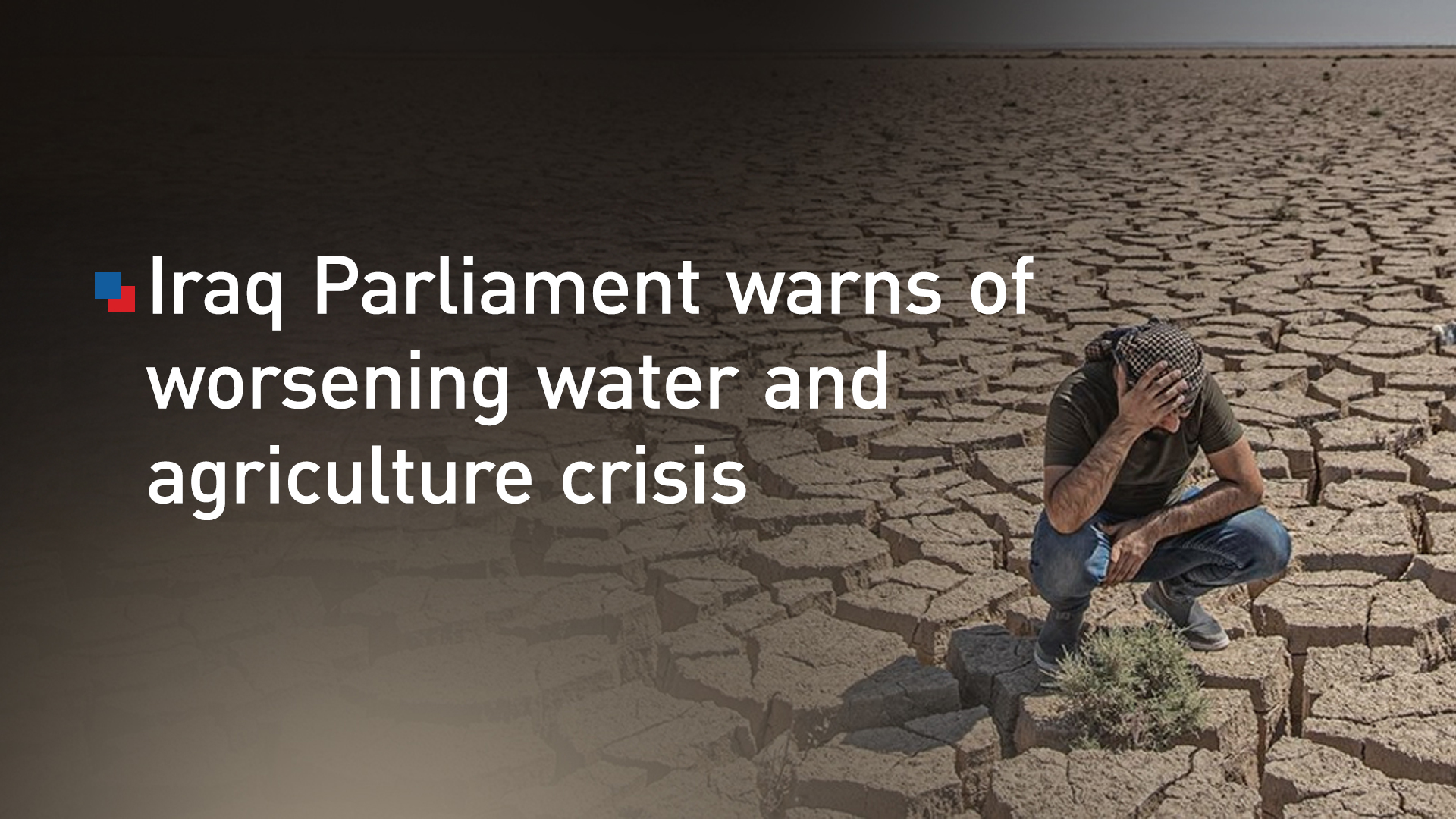Iraq Parliament warns of worsening water and agriculture crisis
Iraq's Parliament Agriculture Committee warns the country faces a "highly dangerous phase" as water shortages cause 70% livestock decline and threaten food security. UN reports rank Iraq among the five nations most affected by climate change, with severe desertification reducing green cover.

ERBIL (Kurdistan 24) — Iraq’s Parliament Committee on Agriculture and Water warned that the country is entering a “highly dangerous phase” as worsening water shortages severely impact the agricultural sector, livestock, and fisheries.
Ibtisam Hilali, a member of the committee, stated that Iraq is “passing through an extremely alarming stage.” She explained that this year, the water required for irrigation has not been provided, and so far, the agricultural plan has not been announced. “There is a possibility of a significant reduction in cultivated areas,” Hilali said.
According to Hilali, the losses are widespread and have deeply affected Iraq’s food security. “The livestock sector has declined by 70 percent, which represents the most severe damage,” she said, noting that many agricultural products are disappearing entirely this year due to the lack of water. The fisheries sector has also suffered extensive losses, with many wetlands drying up—leading to the death of numerous birds and animals dependent on those ecosystems.
Hilali stressed that “this crisis is a real threat to Iraq’s food security and environment.” She added that the water shortage is not limited to this year but is the result of accumulated neglect over many years. According to United Nations reports, Iraq is among the five countries most affected by climate change globally.
Over the past three decades, Iraq has lost nearly 30 percent of its agricultural land due to desertification, while approximately 100,000 donums of land are lost each year to advancing desert conditions. The country’s green cover has decreased by around 50 percent, dropping from nearly half of the national territory to just 17 percent, and forests now make up only 2 percent of Iraq’s total area.
Although the Ministry of Water Resources has stepped up its efforts to mitigate the damage, the scale of the disaster requires urgent government action and regional cooperation to help restore Iraq’s water reserves.
Despite the declining levels of the Tigris and Euphrates rivers, authorities overseeing Iraq’s dams have assured that “drinking water and essential usage supplies for this and the next season are fully secured.”
Experts estimate that Iraq needs to invest more than 10 billion cubic meters of water annually to counter desertification and recover parts of its lost natural environment.